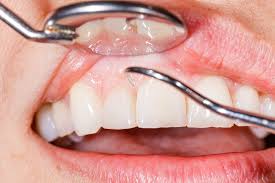Dental exams go beyond a check-up for the teeth, providing numerous additional benefits. Your oral health and overall health are intertwined in ways that might surprise you. Regular dental visits not only help keep your smile in shape but also play a role in your body’s overall well-being. Here’s how oral health connects to your entire system and why making dental care a priority benefits more than just your teeth:
Where Signs Appear
Signs of certain medical conditions often appear in the mouth first, providing dentists with a unique perspective. Swollen gums, ulcers, or unusual discolorations may hint at more significant health concerns. Chronic bad breath and dry mouth can sometimes indicate underlying digestive issues. Similarly, gum disease is associated with other conditions, such as diabetes or cardiovascular health issues.
During a dental exam, your dentist looks beyond cavities and plaque. They evaluate the tissues in your mouth, searching for subtle signs that might indicate something affecting your general health. Regular check-ups help spot these indicators early, potentially leading to prompt investigation and management.
Role of Inflammation
Inflammation affects your body, including places like your mouth. When your gums are inflamed due to conditions like gingivitis or periodontal disease, the effects go beyond your mouth. Studies suggest chronic oral inflammation may be linked to inflammation elsewhere in the body. This condition encompasses pathways that connect oral health to heart and joint health.
When untreated, inflammation might escalate and stress your immune system. It’s like a chain reaction. Harmful bacteria in the mouth do not merely stay local; they might enter the bloodstream and trigger broader issues. Addressing inflammation early through routine dental care reduces the risk of it developing into something more severe.
Better Health Steps
Maintaining oral hygiene helps your entire body, which can be improved by incorporating a routine. Healthy daily habits keep harmful bacteria and plaque buildup at bay. Here are a few simple steps to incorporate into your routine:
- Brush twice every day with fluoride toothpaste.
- Floss regularly to remove debris from hard-to-reach spots.
- Limit foods and drinks high in sugar to protect your enamel.
- Stay hydrated, which helps support saliva production for a cleaner mouth.
These habits lower the chance of oral infections that might affect your body’s systems. Small changes in oral hygiene routines often lead to better long-term health outcomes.
Regular Dental Exams
Dental exams are integral to keeping you healthy, providing you with a chance to catch conditions early. They give you an opportunity for early detection of dental issues and potential systemic problems. Early detection makes it easier to treat conditions before they progress. Catching gum disease in its initial stages reduces the likelihood of more significant treatments down the line.
Connection With Community
Being proactive about dental health fosters a sense of accountability and connection. When you commit to regular check-ups, you set an example for those around you, whether it’s family, coworkers, or friends. Communities may be stronger when individuals actively care for themselves and inspire others to do the same. Scheduling routine dental appointments builds the foundation for better health at both personal and collective levels.
Take Action Today
Your mouth plays a significant role in how your body feels now and in the future. Regular dental visits provide an opportunity to focus on your overall well-being. If you’ve been postponing your check-up, don’t wait any longer. Schedule your dental exam today to take the first step toward better oral and overall health.
- Choosing the Right Plastic Surgeon for Your Cosmetic Procedure
- Understanding Different Types of Laser Treatments for Skin Rejuvenation
- Why a Family Dentist is Key for Maintaining Oral Health
- The Benefits of Regular Visits to a Wellness Spa
- Exploring the Emotional and Psychological Triggers of Eating Disorders


Leave a Reply